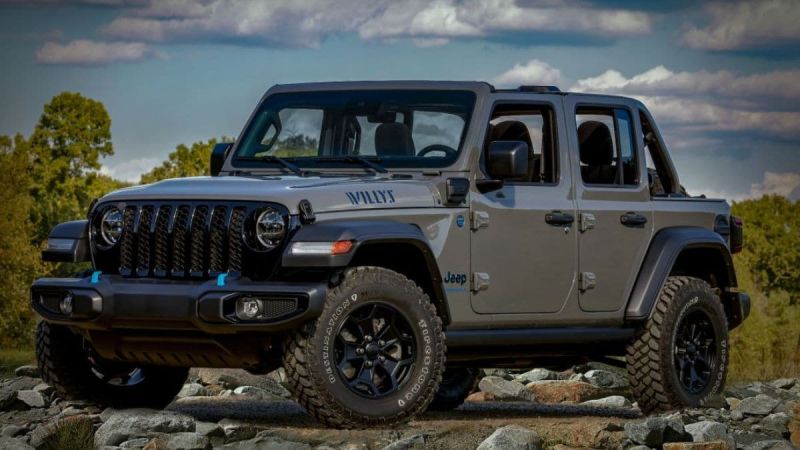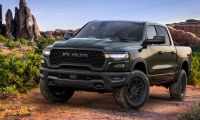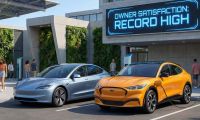To be clear, Jeep hasn’t just had a string of recalls mildly inconvenient to owners. No, the recalls affecting Jeep PHEVs include: risk of fire (a recall that has happened more than once), software failures that do things like prevent the window defoggers from working, and more. These recalls have meant that drivers either couldn’t use their PHEVs as PHEVs (i.e. they were advised not to plug them in to prevent catching on fire), or that they couldn’t even drive their vehicles (because one wouldn’t want to risk driving in winter or in humid weather without window defoggers). So these are extremely serious recall issues that buyers should be fully aware of.
And while my suggestion of Jeep “doing it wrong” may not be fair, the fact remains that such serious recalls for most Jeep PHEVs ever sold is a significant concern that any rational shopper might consider a deal breaker. It begs the question: if the Jeep PHEVs have been so problematic, why are they so popular?
Besides the die hard fan base and the appeal of Jeep’s rugged designs, I think the answer may at least in part be due to rental car fleets. While vacationing in Hawaii I have seen dozens of PHEV Jeeps for example. They show up in every beach and tourist attraction parking lot I have been in. Added to this the fact that with incentives, Jeep PHEVs can cost the same or less as their non-hybridized brethren. Thus, you can see why 50% (yes, half) of all Jeep sales in the US in Q1 2024 were of the PHEV variety, not to mention 23% of total Jeep Grand Cherokee sales, according to InsideEVs and MSN.com.
Interestingly, the figures that InsideEVs published can help us estimate the total US PHEV market, and to some extent the demand, for the current year. According to MSN/InsideEvs, the Jeep Wrangler and Grand Cherokee PHEVs “are currently ranked the No. 1 and No. 2 best-selling [plug-in] hybrids in the country”, selling 19,090 and 12,660 units, respectively, in Q1 2024.
This means that all the rest of the PHEV models on the market sold less than 12,660 units in the first three months of the year, like Toyota’s Rav4 and Prius Prime, Ford’s Escape PHEV, and other best selling PHEVs from the likes of Kia (in the Sportage, Niro and Sorento PHEVs), Hyundai, BMW etc. For further reference, the #3 best-selling PHEV in the US for Q1 2024 was the Rav4 Prime at 7,767 units according to InsideEVs and the Chrysler Pacifica Hybrid was likely #4 at 7,320 units also according to MSN/InsideEVs. #5 May have been the Dodge Hornet PHEV with 5,983 units, or it could have been one of the other models from Kia, Ford, BMW or Hyundai. All told, we may be looking at a Q1 total for US PHEV sales at somewhere between 75,000 - 100,000 units.
If that total were more or less steady for the year, 300,000 - 400,000 PHEV sales mean that a serious volume has finally been achieved, though potentially half or more of the total sales belong to Stellantis.
Ultimately we can say that other brands selling PHEVs are struggling to compete and the US market plug-in vehicle sales race is not really Tesla vs. Ford or even Tesla vs. Hyundai Motor Group per se, it is currently Tesla vs. Stelantis (not something I would have expected a year ago).
Ultimately, this piece is about whether or not Jeep is likely to keep its best selling PHEV spot(s). I think the answer depends on whether PHEVs appeal more to shoppers that like “adventure” vehicles or other, more mainstream models and what models carmakers decide to bring to market in the US.
For example, if Kia and Hyundai decided to offer PHEV versions of their entry level sedans, largest SUVs and other “light trucks”, or Ford or Toyota started selling PHEV versions of their mid and full sized pickups, I think Stellantis’ hold on the plug-in market’s second spot would quickly slip. If other brands are paying attention to Stellantis’ plug-in vehicle sales (and I expect they are), you can expect there to be lots more PHEV SUVs and light trucks coming to market soon.
Are you in the market for a PHEV? If so, which body style(s) are you interested in? Please leave your questions and comments below.
Image courtesy of Jeep.
Justin Hart has owned and driven electric vehicles for over 15 years, including a first generation Nissan LEAF, second generation Chevy Volt, Tesla Model 3, an electric bicycle and most recently a Kia Sorento PHEV. He is also an avid SUP rider, poet, photographer and wine lover. He enjoys taking long EV and PHEV road trips to beautiful and serene places with the people he loves. Follow Justin on Torque News Kia or X for regular electric and hybrid news coverage.
Set Torque News as Preferred Source on Google











